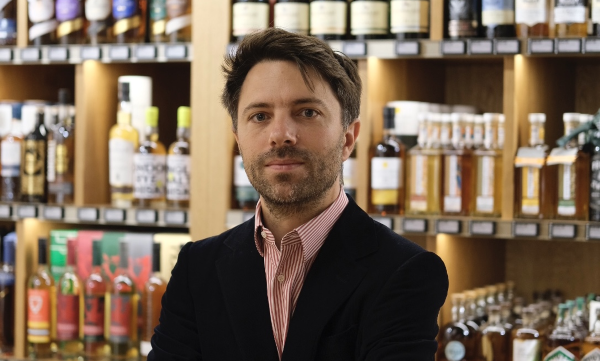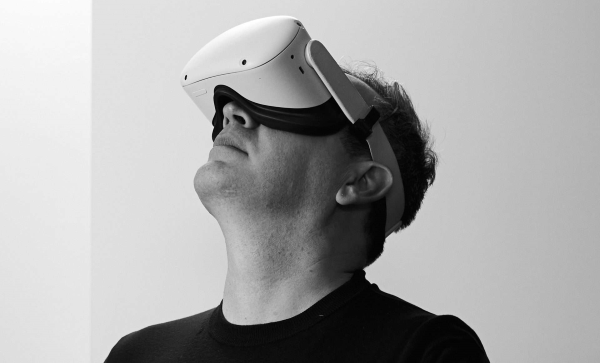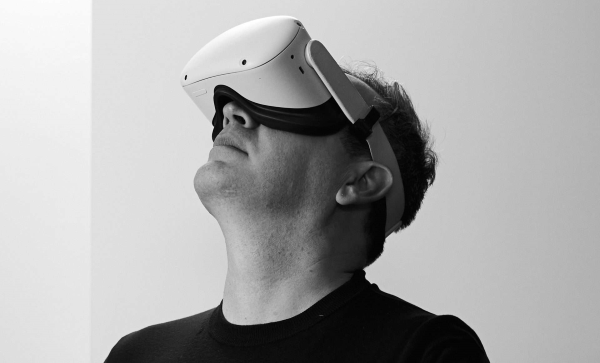NFTs and Whisky: What's the Point?
It's easy to be cynical about NFTs and whisky, and claim it's just another way of persuading the poor punter to part with even more of their hard-earned cash? But maybe, just maybe, there's more to it than that. Richard Woodard reports for WhiskyInvestDirect.com…
Nicolas Oudinot, the new-ish CEO of Pernod Ricard-owned retailer The Whisky Exchange (TWE), wonders if we might have got it all wrong about NFTs and Scotch whisky. And when he says 'we', he doesn't just mean those of us who thought a blockchain might be something you find on a bike – he means the industry as a whole.
Before we get into Oudinot's take on the issue, a quick recap: a few years back, a few high-end Scotch whiskies began releasing rare, collectable bottles – chiefly via the BlockBar start-up – priced in cryptocurrency with an equivalent dollar value, and underpinned by a unique, secure blockchain guaranteeing provenance, authenticity and ownership. An NFT – non-fungible token – was minted for each bottle as a kind of digital receipt or certificate of ownership.
Much of the initial fanfare focused on the tech without, many would say, really explaining what it was for or how it applied to whisky. More than that, the liquid itself was in danger of becoming an afterthought.
One of the reasons why Oudinot is discussing the issue now is because he is about to launch The Whisky Exchange Cabinet – an online, global platform for the release and trading of rare whiskies underpinned by NFTs and blockchain technology.
The Cabinet will be ring-fenced: it will launch imminently with an exclusive, very expensive and limited release of a famous single malt, to be followed by, in Oudinot's words: "a low cadence of highly differentiated and exceptional products". The secondary marketplace element of the platform will only deal in buying and selling Cabinet releases, again with trading enabled by the blockchain.

"A number of the projects that came to the market until now with similar intent, they're very much focusing on the NFT, and the bottle comes with it," says Oudinot. "We are trying to do that the other way around, although technically it's not that different. We are trying to talk to everyone and to democratise it."
Some of the benefits are nothing new – storage and insurance, for example – but, for Oudinot, the blockchain element gives an extra layer of traceability, from the distiller (or even the farmer growing the barley) through to the final customer, and then trading on the secondary market.
He describes whisky's early dabbling in NFTs as "a bubble", with "prices that were completely crazy" and, as a consequence, the collapse of a number of projects in recent months. Oudinot's vision is for NFTs and blockchain as an almost hidden technological layer offering a guarantee of authenticity and ease of trading, not as a product per se.
He explains: "It's a bit like HTTPS [Hypertext Transfer Protocol Secure - an encryption protocol whose initials precede every www. address on the net]. Who knows what that is? But we are all using it a number of times a day. Probably in a few years you will be using an NFT protocol without knowing you are using it."
All very well, but unless you're a whisky investor looking to make a buck, isn't part of the joy of collecting bottles the ability to see them – stroke them, even – and show them off? Oudinot insists that there's nothing to stop you from doing exactly that – you can get your purchase delivered to your home any time you like, as long as it's been bottled.
He also says that 'digital versions' of whisky collections in the Metaverse could easily follow – something explicitly offered by Crurated, claimed to be the first blockchain-based fine wine community, and now expanding into spirits.
Each Crurated bottle is certified with an NFT, and members can now 'visit' their collections via the website, using a VR headset. They can enter their own cellars, invite friends via a 'multi-player' mode, learn more about their bottles, view a sommelier at work and ask the Crurated AI questions. There's even a 'virtual unboxing' ceremony for those exciting new purchases.

But, before we all forsake the real world for the whisky Metaverse, here's a question: what's in it for the industry? Well, there are certainly added benefits for customers and some protection against all the fakes out there, and there's the potential to reach new audiences.
More tangibly, there's money. The NFT is linked to the bottle by a smart contract, which can stipulate that, when the NFT/whisky is resold, part of the transaction value goes back to the distiller. For companies that have seen 'their' whiskies bought and sold for ever higher sums on the secondary market – without recouping a bean – that's a major plus.
It's still early days for whisky and NFTs; it's taken this long for The Whisky Exchange and, by extension, Pernod Ricard, to get involved partly because of compliance issues around the lack of regulation, and partly because of worries over sustainability (blockchain famously uses a lot of energy, something that Oudinot claims has largely been resolved now).
But that doesn't diminish the company's enthusiasm. Oudinot believes the tech will offer the industry and its customers "significant additional benefits", with "a lot of implications for the secondary market" – and says there's plenty more to come.
"It's the beginning of a new phase," he says. "This is why we are really starting now to bring this technology to our business partners and consumers – because the only way to know about it and to be at the forefront of it is to play with it."

Richard Woodard has been writing about spirits and wine for 20 years, editing and contributing to a number of magazines and websites, including Decanter, The Spirits Business, just-drinks.com and Club Oenologique. He was also one of the founding editors of Scotchwhisky.com.




